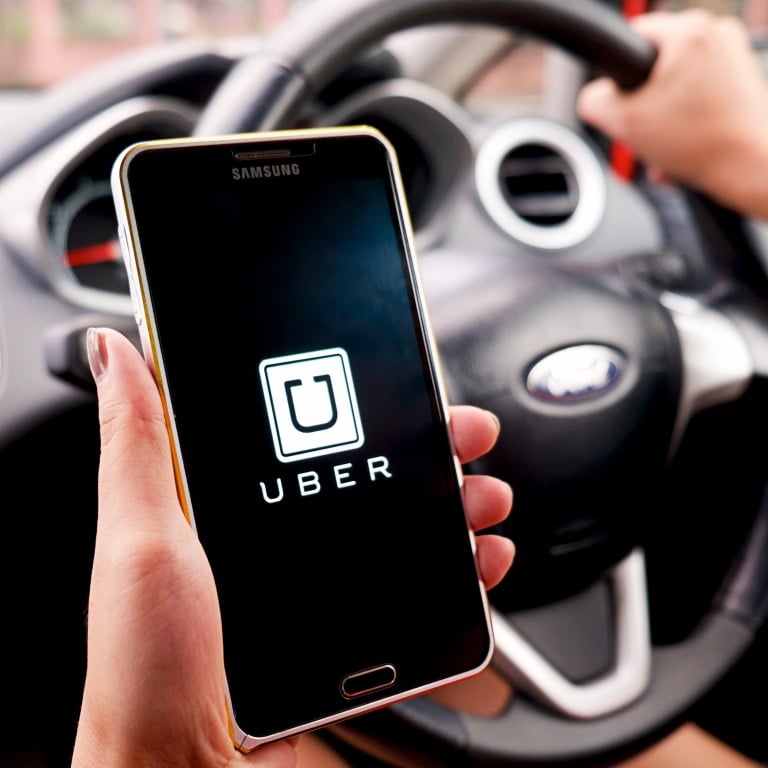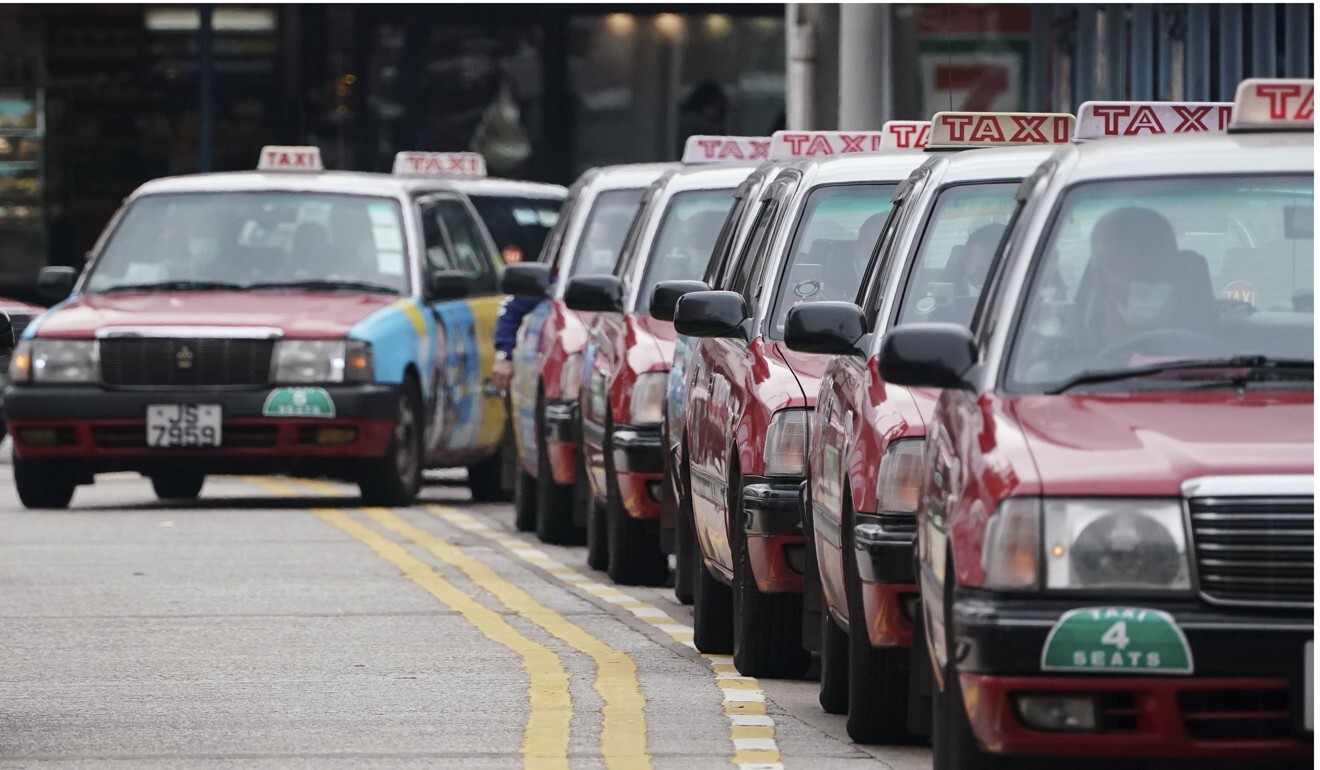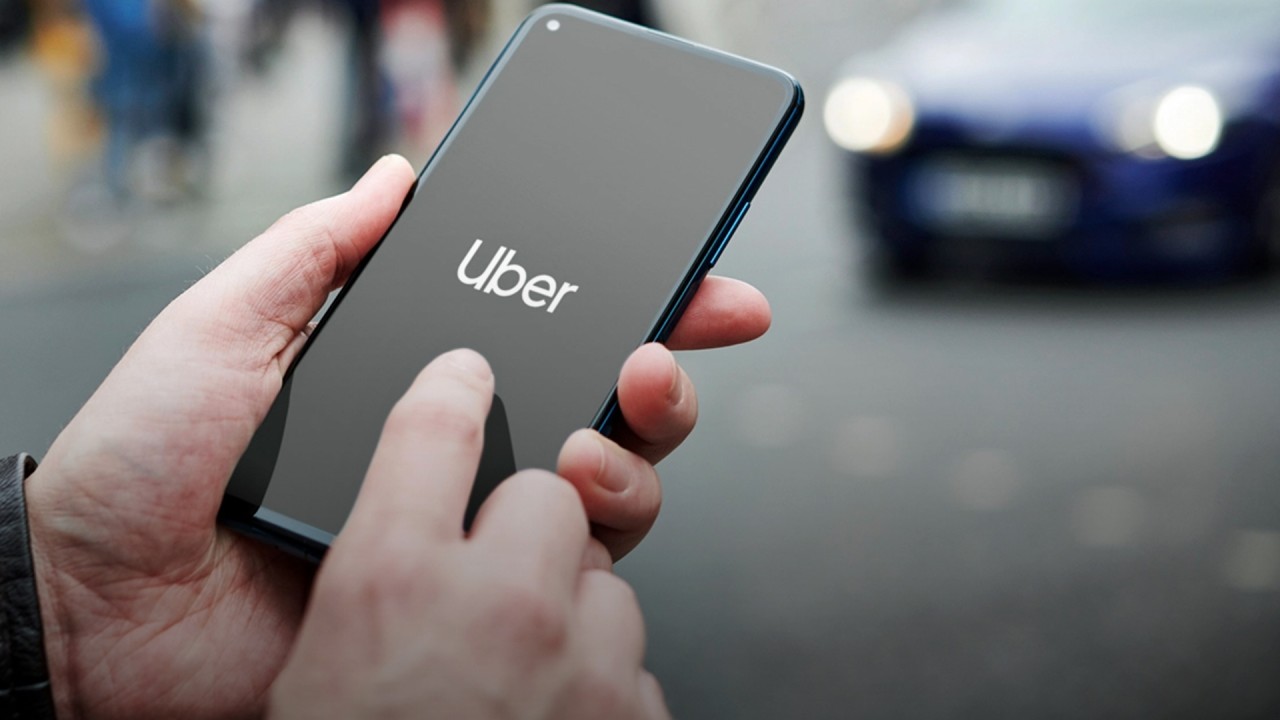
Hong Kong taxi operators again press for curbs on Uber, even as ride-hailing firm expands links with cabbies
- Uber has been operating in Hong Kong for seven years although ride-hailing services are not legal without a hire-car permit
- Firm says it welcomes regulation, ready to be a partner in improving city’s transport system
The industry wants all private vehicles with neither a valid hire-car permit to carry passengers for payment nor a taxi licence to be banned from Uber’s app.
“Uber will be held accountable if unqualified vehicles are found using its app to take ride-hailing orders,” said Chau Kwok-keung, chairman of the Hong Kong Taxi and Public Light Bus Association.
He said he presented the idea on behalf of the industry group to senior transport officials in August.
“I suggested that the government introduce a law to regulate the Uber app, so that those vehicles without a hire-car permit or a taxi licence can’t sign up for the Uber ride-hailing platform and provide service,” he said.

The officials promised to think about it, but Chau said he was disappointed they did not give any timetable for action.
This was the taxi operators’ latest salvo in a long-running battle to curb rival Uber, which they accuse of robbing their business at a time when cabs have been criticised for poor service and the bad attitude of some drivers.
Although Uber has been operating in Hong Kong for seven years, ride-hailing services are not legal without a hire-car permit and the firm has been under attack by the taxi industry, with 40,000 active drivers for 18,163 licensed cabs.
With only 1,500 permits issued for private hire-car services, it means many Uber drivers are picking up passengers without the required permit.
Uber has about 14,000 active drivers in Hong Kong. There are other ride-hailing services but they are legal, using taxis or cars with the permits.
Last year, there were 49 cases of summonses issued or arrests made for offences related to hire-car permits, down from 184 in 2019.
More than 70,000 registered cab drivers – full-time, dormant and part-time – have signed up for the HKTaxi app, opening the door to more cooperation between cabbies and Uber.
Hong Kong cabbies earn more with Uber, but council warns they risk breaking the law
The deal is expected to complement Uber Taxi, which was rolled out last October, charging passengers flexible fares rather than by the meter.
Chau said a loophole in the law allowed firms such as Uber to escape liability, and a new law was needed to crack down on illegal ride-hailing operations and prosecute the firms rather than drivers without a hire-car permit.
“The drivers take all the blame, they will be arrested and face a fine. The law enforcement highly relies on the ambush operations of police, which are not really effective,” he said.
“The most outrageous thing is that with the existing law, we can never prosecute Uber, the business operator.”
Ng Kwan-sing, vice-chairman of Hong Kong Taxi Council, an alliance of 17 groups comprising owners, drivers and others, complained that the government appeared lukewarm to the industry’s repeated calls to amend the law.
He recalled that the government proposed in 2019 to have stiffer penalties for drivers who provided illegal rides, including Uber drivers, but nothing had been done so far.

05:06
Could Uber move its Asia regional headquarters to Hong Kong?
Responding to queries from the Post, a Transport and Housing Bureau spokeswoman did not say if the taxi industry’s suggestion was being considered, or if any moves were being planned to target firms behind illegal services.
She stressed only that driving a vehicle without a valid hire-car permit for hire or reward was an offence, and the police would “take appropriate enforcement action” if there was evidence of vehicles carrying passengers illegally.
She added that the Transport Department was still working on amending the law to stiffen penalties for drivers who provided illegal ride-hailing services.
Hong Kong woman sues Uber over 2018 accident that left 1 dead, 4 injured
Richard Willder, Uber’s head of public policy in Hong Kong, said the company did not mind being regulated, and hoped the hire-car permit regime could be revamped and modernised for ride-sharing.
“We want to be regulated and we are eager to work with the government, to partner with the industry, to build a stronger, more vibrant transport network in Hong Kong,” he said.
He also called for a partnership with the taxi industry, saying the number of cabbies signing up with Uber had increased sharply over the past year.
“Our significant investment in local start-up HKTaxi is a clear demonstration of our long-term commitment to taxi services and Hong Kong,” he said.
Quentin Cheng Hin-kei, spokesman for commuter concern group Public Transport Research Team, said he wished the city’s taxi industry would stop harping on about ways to crack down on Uber.
“The taxi sector should instead seek ways to improve its service and learn to coexist with Uber,” he said. “After all, Uber has become part of Hongkongers’ daily life. The taxi industry should accept this reality and strive to achieve a win-win situation for themselves.”
Cheng said the government should open up the ride-hailing market with a simplified regulatory regime.
“The current highly restrictive hire-car permit system has in fact hampered transport development in the city,” he said.

